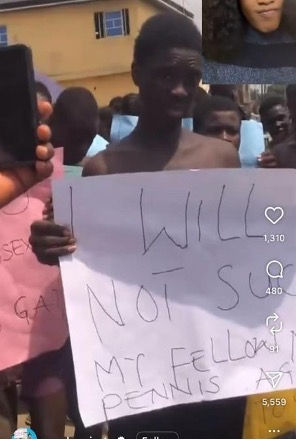ONLINE VIOLENCE AND ITS IMPACT ON WOMEN AND GIRLS
- Yua Miriam
- Nov 27, 2020
- 3 min read
Isabella cries out loud as she saw her nude pictures and other personal information posted on social media by her ex-husband. Her friend Aurora rushed into the room with towel on her chest to inquire on what the situation is, Isabella looked at her with a sad face and said, you can’t believe what I saw on social media, Isabella gave her the phone and she saw the nude pictures and other personal information the Ex-husband posted, OMG! She screamed. How can your ex-husband be so cruel?
According to Global Fund for Women, Online violence against women is an overt expression of the gender discrimination and inequality that exists offline. In 2015, the UN Broadband Commission warned that cyber VAWG had become “a global problem with serious implications for societies and economies around the world.” It noted that 73% of women and girls had encountered some form of online violence; that women were 27 times more likely to be abused online than men; that 61% of online harassers were male; and that women aged between 18 and 24 were at particular risk.
Online violence against women has become a common experience especially for lesbians, bisexual or trans women or any combination, women in politics, journalism and women with disabilities. This creates an environment with the intention of raising alarm, body shaming, intimidating or humiliating and pushing women/girls offline. This is usually directed towards those who are trying to amplify their voices on the issues faced by women/girls online. Online abuse against women/girls is also increasingly being used as a tactic to publicly use power over women, thereby preventing them from expressing themselves freely, which is a fundamental right of everyone regardless of gender identification and/or orientation. Sometimes, Men are also harassed online, but women are the target, online harassment quickly descends into sexualized hate or threats.
The greatest impact on women and girls when they experience violence online is self-restriction, and that is what the abusers want. Most times only physical violence is taken seriously, but as it stands online violence is equally harmful. As it is the case with most women, they turn to avoid social media platforms after being harassed. Online violence is a public health issue and the effects are very harmful; it results in physical, sexual, psychological or economic harm, and erodes self-esteem.
Internet access is growing across all continents. With the advent of COVID-19 that has impacted the way of lives of the people, every attention has tilted more to internet usage than ever before and offline violence has extended to online, which makes it easier for people to commit violence without consequences. Women are the main targets of online violence, especially women with voices, like female journalists and politicians. Online harassment can include bullying, trolling, cyber stalking, defamation and hate speech, public shaming, and identity theft and hacking amongst other offences.
Online protection is an urgent priority every single day, billions of people around the world use social media to connect, report abuses that happened offline, learn and share as well as for everyday communications. Social media platforms can help give a voice to the voiceless by raising the profile of some of the most marginalized women and girls in the society.
Many women/girls around the world are experiencing attacks on their websites and social media pages, a host of attackers have succeeded in hacking into and gaining control over women’s and activists’ accounts just to cause alarm, intimidate and harass them and also use their personal images and details to scam their followers.
Online violence against women and girls is real with attendant effects and sometimes it moves from online to offline. Women/girls are learning to expect and accept abuse as a normal part of their daily life experience. Most women/girls have reduced the usage of social media owing to abuse and harassment, while those who are still active on these platforms are forced to change how they express themselves to avoid harassment, which has driven most of them to depression.
Girls around the world have written an open letter to Facebook, Instagram, TikTok and Twitter, the world’s most influential social media platforms, to create ways to report abuses and harassment in order to be free and secure when online.
COVID-19 has move more of our lives online, it’s vital that social media space is safe for women and girls.
Isabella’s ex-husband was arrested and detained by the police officers for violating his ex-wife’s right to privacy.
Recommendations
Government should create effective and accessible reporting mechanisms that target gender-based violence online
Government should hold perpetrators of rights violations to accountable
Social media platforms should also create a safe reporting mechanism that will be safe for women and girls.
SAY NO ANY FORM OF GENDER-BASED VIOLENCE








Comments